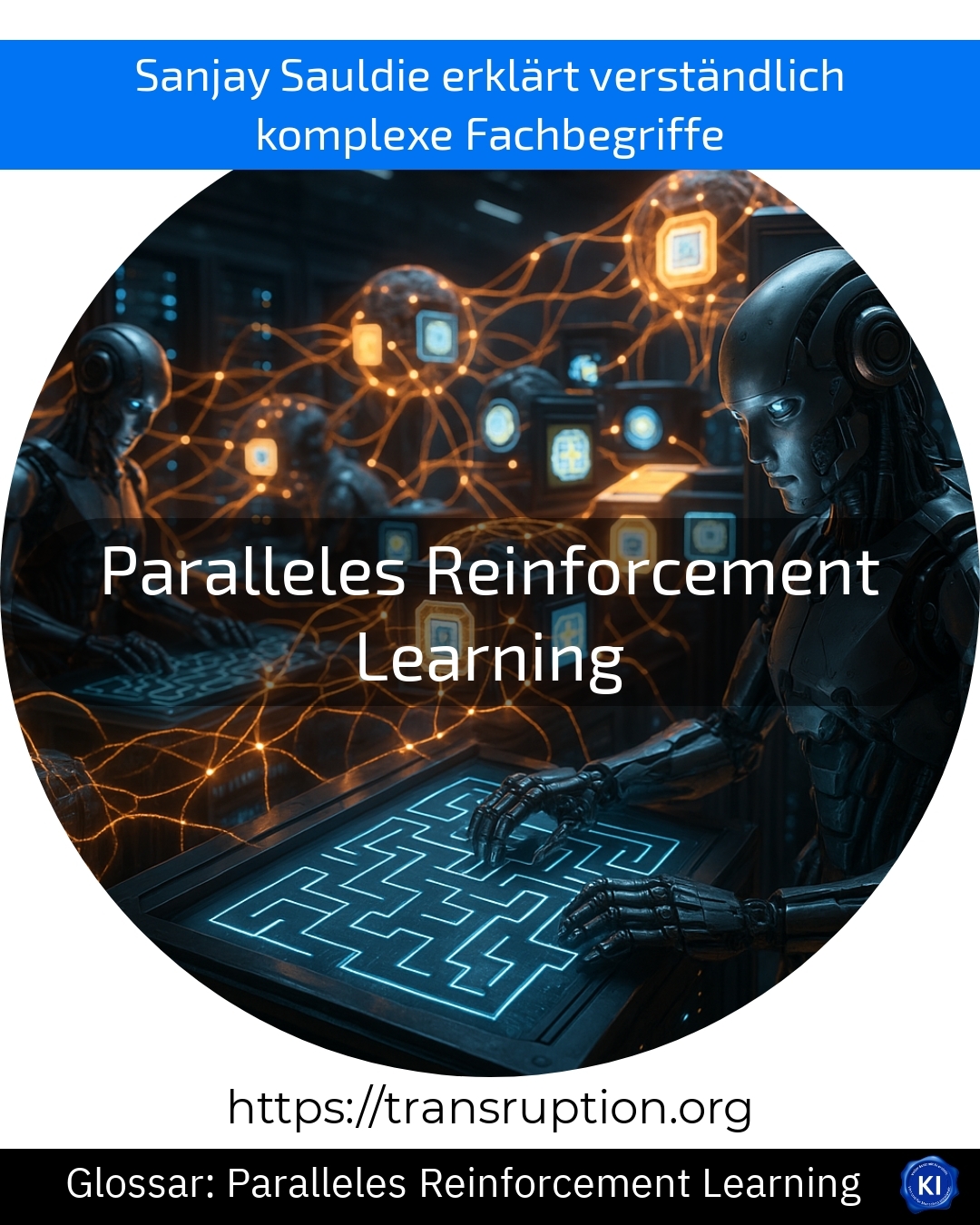Parallel reinforcement learning belongs to the category of artificial intelligence and is closely linked to automation and Industry and Factory 4.0.
The term describes a special method of machine learning in which several computer programmes, known as "agents", learn simultaneously and independently of each other. Instead of trying out a single solution, many agents test different ways of mastering a task in parallel. This makes learning much faster because much more data can be collected in a shorter period of time.
An illustrative example: Imagine a factory where robots have to learn how best to assemble a product. With parallel reinforcement learning, many robots can try out different construction methods at the same time. The best methods are collected, analysed and passed on to the other robots. This enables the robots to find particularly effective and safe working methods in a short space of time.
This technology helps companies to optimise processes and drive automation faster. Parallel reinforcement learning makes artificial intelligence significantly more efficient and is an important building block for the "smart" factory of the future.















